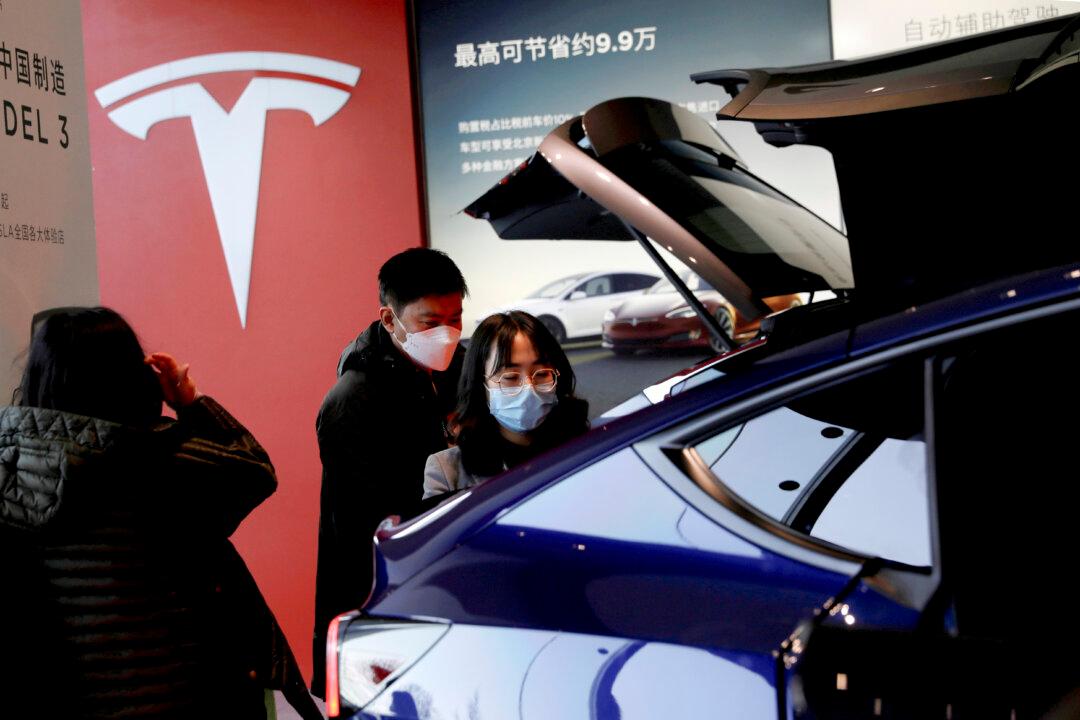Tesla’s electric cars were recently added to government procurement lists in the eastern coastal areas such as Shanghai and Jiangsu Province.
One China analyst told The Epoch Times that the Chinese Communist Party (CCP) is giving Tesla special treatment because the regime wants to acquire the carmaker’s battery technology, which could alleviate production bottlenecks in Chinese electric vehicles (EVs).




